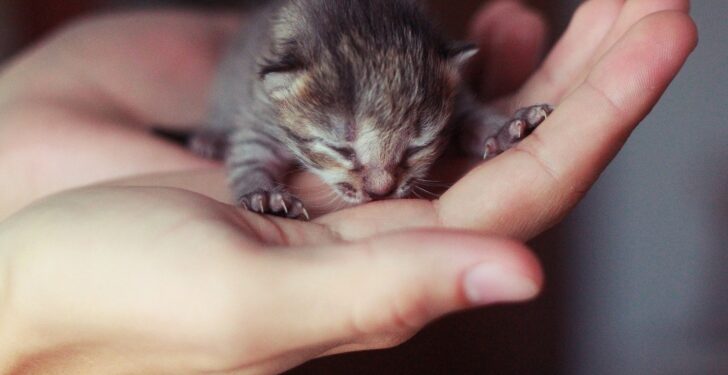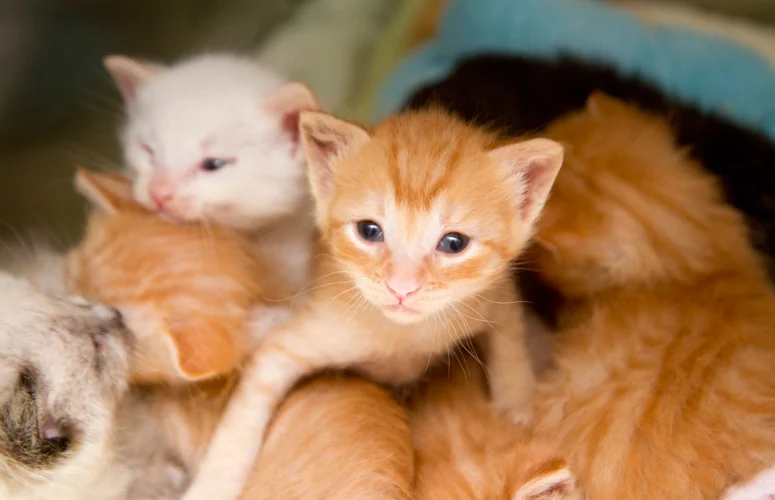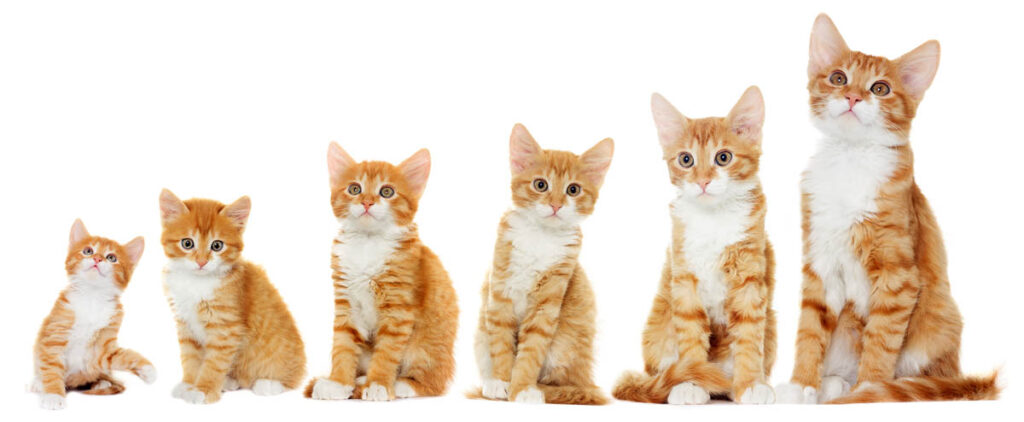Understanding your kitten’s development stages is crucial for providing the best cat health care. Each stage of a kitten’s growth comes with its own set of needs and milestones, and being aware of these can help you offer optimal support and care. Here’s a comprehensive guide to navigating these stages effectively.
1. Newborn Stage (0-2 Weeks)
Key Characteristics:
- Physical Development: Kittens are blind, deaf, and unable to regulate their own body temperature. They rely entirely on their mother for warmth and nutrition.
- Care Tips:
- Feeding: Newborn kittens require frequent feedings, usually every 2-3 hours. Use a high-quality kitten formula if the mother is not available.
- Temperature Regulation: Keep the environment warm and avoid drafts. A heating pad can help maintain a stable temperature.

Best Cat Health Care Insights:
- Regularly monitor the kitten’s weight and growth. Ensure that they are gaining weight consistently, which is a sign of proper nutrition and health.
2. Transitional Stage (2-4 Weeks)
Key Characteristics:
- Physical Development: Kittens begin to open their eyes and ears. They start to explore their surroundings and are more active.
- Care Tips:
- Socialization: Introduce gentle handling and begin basic socialization. This helps in making the kitten more adaptable and friendly.
- Litter Training: Start placing the kitten in a litter box after meals to encourage early litter training.

Best Cat Health Care Insights:
- Regularly check the kitten for signs of developmental issues. This stage is crucial for setting the foundation for healthy growth and behavior.
3. Socialization Stage (4-9 Weeks)
Key Characteristics:
- Physical Development: Kittens become more agile and coordinated. They begin to play with littermates and explore more actively.
- Care Tips:
- Play and Interaction: Engage in interactive play to stimulate physical and mental development. Toys that encourage hunting and pouncing are ideal.
- Basic Training: Start teaching basic commands and social skills. This is also a good time to introduce grooming routines.

Best Cat Health Care Insights:
- Ensure that your kitten receives a health check-up and vaccinations. Proper veterinary care is essential during this period for preventing common illnesses.
4. Juvenile Stage (9-12 Weeks)
Key Characteristics:
- Physical Development: Kittens continue to grow rapidly and their personalities become more distinct. They start to resemble adult cats in behavior and appearance.
- Care Tips:
- Diet: Transition to solid food and ensure a balanced diet that supports continued growth. High-quality kitten food is crucial for this stage.
- Social Skills: Continue socializing and exposing your kitten to different environments. This helps in preventing behavioral issues later on.

Best Cat Health Care Insights:
- Regular veterinary visits are essential to monitor growth and development. Discuss any concerns about health or behavior with your vet.
5. Adolescent Stage (3-6 Months)
Key Characteristics:
- Physical Development: Kittens reach adolescence and begin to test boundaries. They may exhibit more independent behavior and higher energy levels.
- Care Tips:
- Behavior Management: Reinforce training and establish clear boundaries to manage adolescent behavior. Consistent routines help in maintaining good behavior.
- Spaying/Neutering: Consider scheduling spaying or neutering if it hasn’t been done yet. This is important for overall health and behavior management.

Best Cat Health Care Insights:
- Keep monitoring your kitten’s health and behavior. Regular check-ups and a balanced diet will support their transition into adulthood.
By understanding these kitten development stages and providing the best cat health care, you ensure a smooth transition from a tiny newborn to a healthy, well-adjusted adult cat. Regular veterinary visits, proper nutrition, and early socialization are key to a thriving feline companion.





















